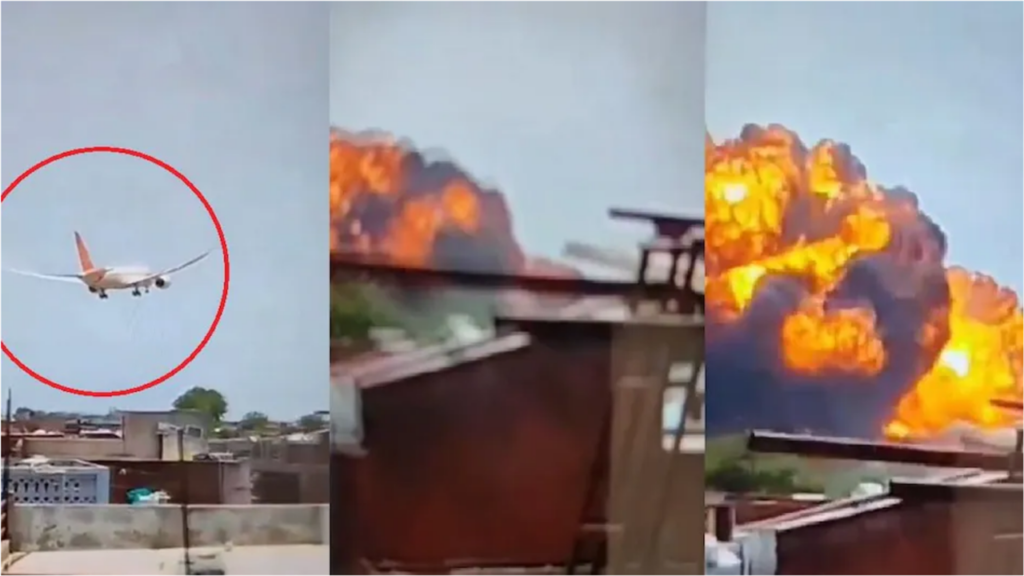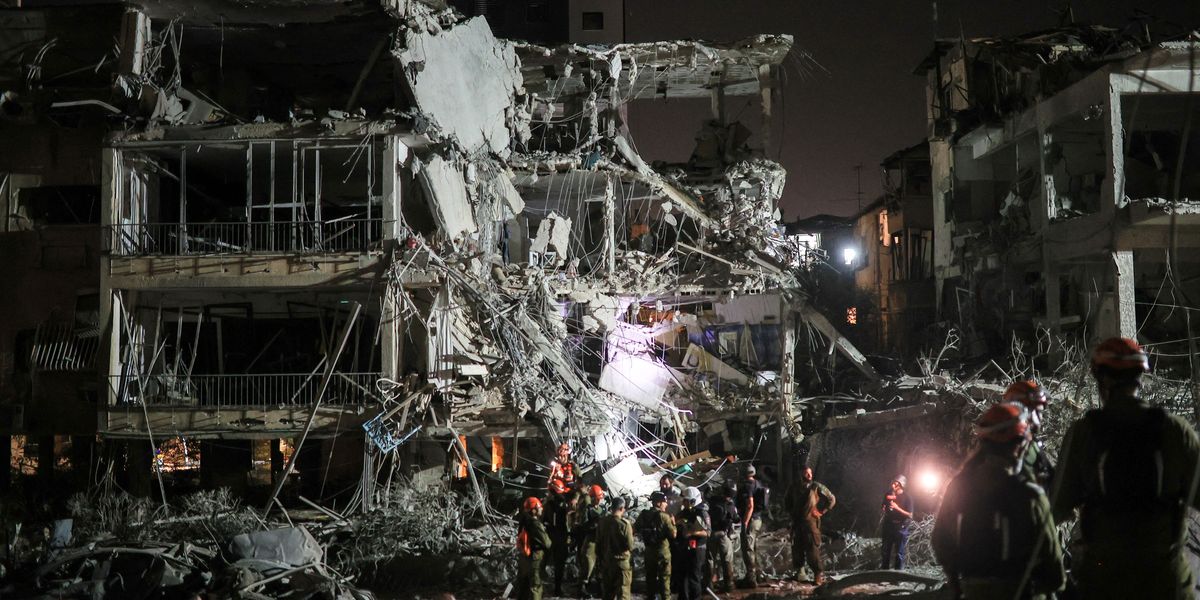Middle East War: Next Steps For Israel And Will Iran Blockade The Straits Of Hormuz

By John Kemp, author of KempEnergy.com
The United States has partially distanced itself from Israel’s military operation characterising the strikes as a “unilateral action” and emphasising that the United States was “not involved”. It is likely the United States had some degree of foreknowledge of the operation. “Israeli officials said that Netanyahu signed orders authorizing the attack on Monday. He spoke on the phone with Trump that same day,” according to the Washington Post. It seems very likely that the issue was discussed in at least general terms during the call on June 9. In the following days, the United States had taken steps to reduce its exposure to retaliation in the days leading up to the strike by reducing its diplomatic and military footprint in the region.
The United Kingdom Maritime Trade Operations (UKMTO) also issued an unusually specific warning on June 11 to vessels in the region: “UKMTO has been made aware of increased tensions within the region which could lead to an escalation of military activity having a direct impact on mariners. Vessels are advised to transit the Arabian Gulf, Gulf of Oman and Straits of Hormuz with caution.” Give the extent of intelligence sharing and diplomatic between Israel and the United States and between the United States and the United Kingdom and the other European allies, some degree of foreknowledge is very likely. The diplomatic moves and vessel warnings strongly indicate the United States had significant prior knowledge of the operation even if Israel did not share precise about the timing or specific targets and operations plan.
It is unlikely Israel formally requested U.S. support or the United States formally gave the greenlight to the operation to enable the United States to maintain some plausible deniability. But Israel will only have felt confident to proceed if it believed the United States and its European allies would eventually, tacitly and retrospectively support the operation, especially by taking steps to constrain Iran’s retaliation.
The United States position on the strikes remains ambiguous for the time being. By partially distancing itself from the operation, the United States seems keen to portray the conflict as bilateral between Israel and Iran, trying to avoid counter strikes against U.S. personnel, assets and interests in the region, and thereby limiting Iran’s options for retaliation. But the United States has not condemned the operation and it is likely to provide support to Israel to help the country defend itself from the inevitable retaliation. For the time being, the United States and its European allies are characterising their involvement and support to Israel as defensive rather than offensive in nature. The intention appears to be limit further escalation and leave space for further diplomatic negotiations to end the immediate hostilities and resume talks about the nuclear programme.
In response to the attacks, Iran is likely to end cooperation with the International Atomatic Energy Agency (IAEA) and suspend or withdraw from the Treaty on Non-Proliferation of Nuclear Weapons (NPT). Iran’s government has threatened multiple times in the past it would respond to any attack on its nuclear facilities by ending its adherence to the NPT and is unlikely to see any benefit from remaining within the NPT framework while under attack. Iran will see withdrawal as a high-profile symbolic move as well as a means to impose diplomatic costs on the United States and its European allies for supporting Israel.
Iran is likely to suspend or end nuclear negotiations with the United States and European Powers (the United Kingdom, France and Germany) seeing little advantage in continuing the talks. From Iran’s perspective, the purpose of the talks was to avert a direct military strike on the enrichment facilities and other military and state targets. Iran is unlikely to agree to resume negotiations unless it receives a clear assurance from the United States that it can and will restrain Israel from further military operations.
AIR STRIKES AND DIPLOMACY
The relationship between the U.S./European military and diplomatic approaches to Iran’s nuclear enrichment programme and other destabilising activities also remains ambiguous. For now, the military approach has taken primacy over the diplomatic one. Scheduled negotiations have already been cancelled. Israel has long argued diplomatic negotiations would not reach a satisfactory conclusion and only military action would prevent Iran from enriching uranium and having the potential to develop nuclear weapons in future. In some senses, strategy has shifted from the diplomatic track to the military one.
But some advocates of military action will likely argue military and diplomatic approaches can be pursued simultaneously. Negotiations while Iran is under fire are more likely to secure an ambitious agreement on terms favourable to Israel and the United States. From this perspective, a weakened Iran can be forced to make greater concessions to preserve what remains of its military capability and ensure the survival of the state. Iran can be confronted with the alternative of accepting an agreement that is unfavourable but at least ends the military action, or refusing a deal and continued bombing. Israel’s military action can be seen as creating leverage and pursuing the hard-line negotiating strategy popularised by in The Art of the Deal ghostwritten for U.S. President Donald Trump.
Israel’s military action also creates an alternative to the diplomatic process and an alternative to enforcement of any future agreement through sanctions. The alternative to a negotiated agreement is likely to be sustained and periodically renewed military operations targeting Iran’s enrichment and missile building facilities and the possible escalation to other military and state targets. If the attacks are severe enough and repeated often enough, they may arrest or reverse Iran’s enrichment activities even in the absence of an agreement. If an agreement is eventually reached, Israel has created a precedent for responding to any non-compliance by using military force rather than economic sanctions.
The Trump administration’s initial response to Israel’s military action has preserved some ambiguity and ensured some limited diplomatic distance but it is likely that it will have to resolve the ambiguity fairly quickly. The Trump administration will have to decide whether or not to embrace Israel’s strategy of military operations as a substitute for diplomacy or coercive negotiations under fire in the hope of securing a favourable resolution to the long-term standoff over Iran’s nuclear activities. Israel’s operation has created a krisis in the sense used by the ancient Greeks, a moment when the Trump administration will be forced to choose. Some members of the Trump administration are likely to welcome the pressure to reach a decision while others may resent the fact Israel has forced the president’s hand and limited his options.
ESCALATION DOMINANCE
Iran’s options for retaliating against Israel remain limited and constrain its response. Drones launched from Iran fly too slowly and travel too far to be much of a threat to Israel. Ballistic missiles fly faster and are harder to intercept but Iran’s missiles are too inaccurate and the payloads are too small to do much damage or hit targets with precision. Iran’s carefully cultivated allies in the Axis of Resistance including Hezbollah in Lebanon, the Assad government in Syria and Hamas in Gaza have all been neutralised and are in no position to fight proxy conflicts against Israel on behalf of Iran.
Israel’s repeated attacks on targets in Iran (assassinations, bombings and air strikes over multiple years) have proved Israel’s intelligence services have thoroughly penetrated Iran’s state apparatus enabling the precise identification of targets.
Iran has also proved unable to defend its airspace. The country’s air defences have long been seen as inadequate, outdated and ineffective. The previous round of Israeli air strikes in 2024 specifically targeted Iran’s limited air defence capabilities and degraded them even further. They cleared the corridor for further air strikes and were specifically intended to reduce the risks of further and more ambitious operations in future. In some ways, the current military operation in 2025 and the previous one in 2024 could be characterised as a double tap, an initial operation designed to create conditions for an even more devastating follow up.
Israel successfully de-risked the military operation in advance both militarily and diplomatically. Iran’s air defences have been degraded by previous air strikes. The United States and its European allies have committed themselves to defending Israel from Iran’s retaliation since the first round of military exchanges in 2024. Israel’s intelligence services have thoroughly penetrated Iran’s military and state apparatus allowing them to operate freely within the country and creating a climate of paranoia. Israel has secured almost unconditional diplomatic support from the United States under the current administration and significant if not unconditional support from the most important European governments.
As a result, Israel has successfully achieved escalation dominance over Iran which has emboldened Israel and to some extent the United States to pursue a hardline strategy in recent years. In retrospect, Iran’s lack of escalation options was revealed by the lack of an effective response when Revolutionary Guards Commander Qasem Soleimani was assassinated by the United States in Iraq in 2020. Iran proved unwilling and/or unable to threaten escalation or restore deterrence after the assassination of Soleimani and a string of other high-profile state figures.
Since then, Iran has proved unable or unwilling to support its allies in the Axis of Resistance, standing by impotently as Hamas, Hezbollah and the Assad government were neutralised by Israel. As Israel has moved steadily up the escalation ladder, Iran’s lack of good response options has become increasingly obvious. Iran’s weakness has been revealed by its inability to impose significant costs in response to attacks on leading personnel and facilities. Despite hardline rhetoric from senior government figures, Iran has increasingly been seen as a paper tiger.
Iran’s top leadership have been revealed as very risk averse and lacking good options to respond. Top leaders have tried hard to avoid open state-to-state conflict with Israel and the United States to focus on ensuring the survival of the state. But it has fallen into the use it or lose it trap. Conservatism and unwillingness to risk conflict has led to the steady loss of allies, destruction of defensive capabilities and narrowing policy options. Israel’s strategy has become bolder as Iran’s weakness has been revealed.
Until recently, Iran’s military and diplomatic strategy centred on creating defence in depth – moving the frontline of conflict into neighbouring states (Iraq, Syria, Lebanon, the Palestinian areas and Yemen) and away from the homeland. With the exception of Yemen, all those Iranian allies have been neutralised. For the last decade, however, Israel’s shadow war has progressively moved the conflict onto Iran’s own territory through the assassination of leading nuclear scientists and other military and intelligence figures. The exchange of missile and drone attacks in 2024 moved the conflict into the open and showed that it would no longer be restricted to covert actions and proxy conflicts but had moved into a homeland-to-homeland phase in which Israel and not Iran had the upper hand.
THREATS IN THE STRAIT OF HORMUZ
Oil market participants have long warned Iran could respond to any conflict by threatening to close the Strait of Hormuz to tanker traffic. For the reasons discussed above, this threat was never very credible and has become less credible over time. Israel and the United States have increasingly held and demonstrated escalation dominance over Iran.
In theory, Iran could halt tanker traffic in the Strait for a short period by attacking or threatening vessels transiting the narrow waters at the entrance to the Gulf. But the most likely response is that the United States and its allies would organise an armed convoying system with U.S. and allied warships escorting tankers. Once convoys were in place, an attack would bring Iran into direct conflict with the United States – a conflict Iran’s leaders have revealed they are anxious to avoid by their prior behavior.
The UKMTO warning to vessels in the area on June 11 in advance of Israel’s attack on Iran on June 13 has significantly reduced the risk of immediate retaliation by clearing the area of all but necessary shipping and ensuring the remaining vessels have been on high alert. The United States has also sought to discourage an immediate Iranian attack on tanker traffic by partially distancing itself from Israel’s military operation. The United States has created some diplomatic space for Iran to retaliate directly against Israel while avoiding attacks on tanker traffic that would risk drawing Israel’s western allies into open conflict with Iran. This is a diplomatic fiction, but possibly a useful one, and the United States may hope Iran’s risk averse leaders are eager to accept.
For similar reasons, Saudi Arabia has condemned Israel’s attack on Iran, attempting to insulate its own oil installations and exports from Iran’s retaliation. Given their risk aversion and current isolation, Iran’s government and military are unlikely to repudiate that rhetorical support by attacking tankers carrying crude from Saudi Arabia or any of the other Gulf producers.
In theory, Iran’s top leaders could escalate the conflict by temporarily blocking the Strait, triggering a sharp rise in oil prices, and hope the resulting threat of severe economic damage causes the United States and its allies to restrain Israel and make concessions. But that high-risk escalatory strategy would be out of character and seems unlikely for the time being unless the top leaders in Iran conclude their survival is under threat.
Loading…














